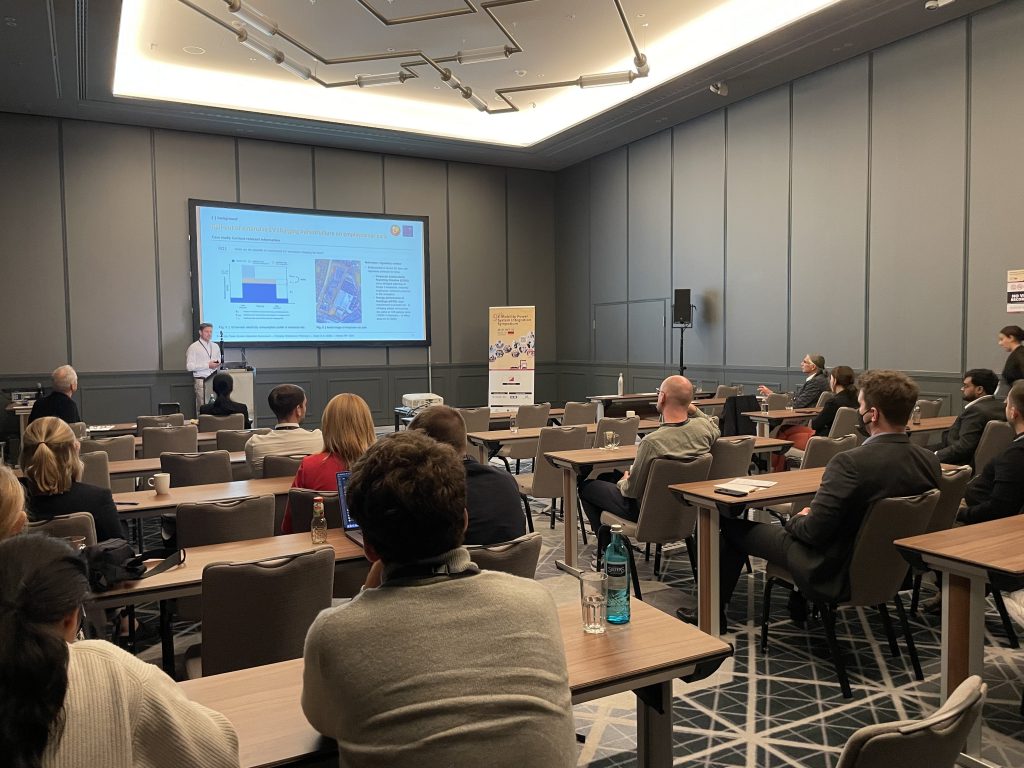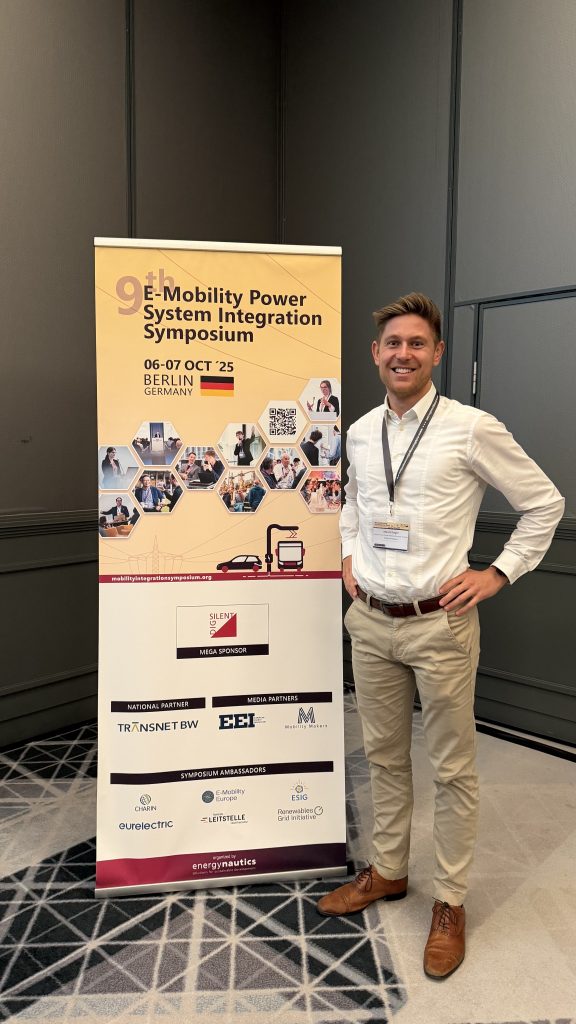In October, DPhil student Marcel Seger attended the 9th E-Mobility Power System Integration Symposium in Berlin. During the two-day conference, Marcel had the opportunity to present his first published journal paper to an audience of experts from across policymaking, industry, academia, and consulting.
His talk, titled ‘Firm-Level Optimisation of EV Workplace Charging: Trade-offs, Impacts, and Tools’, featured in a dedicated session on charging infrastructure planning. Marcel presented the methodological approach and key findings from his first PhD study, conducted in collaboration with a major car manufacturer based in South East England.
The study examines how increasing electric vehicle (EV) adoption among employees affects a firm’s electricity demand profile, and how smart charging algorithms can help manage this impact. Using real-world data, the research shows that optimised charging strategies can reduce peak electricity loads by 28%, and lower charging costs and emissions by 9% compared to conventional ‘plug-and-charge’ behaviour.
Marcel also demonstrated an open-source decision support system developed as part of the project, enabling other organisations to simulate and evaluate similar smart charging strategies using their own operational data.
Find the full presentation slides here.


Image credits: Annike Abromeit, Reza Fachrizal